
Birthplace of Legends Ireland’s Fingal’s Cave
Image: Andy J Billington, Shutterstock. Setting off from Glasgow, taking a sea tour from Oban is the quickest way to visit Fingal's Cave, as it is only two and a half hour's drive away.Staffa Tours organise several tours to Staffa and surrounding islands that take up to 12 hours.The Tobermory, Treshnish and Staffa Wildlife Tour will take guests on an adventure exploring the scenic village.
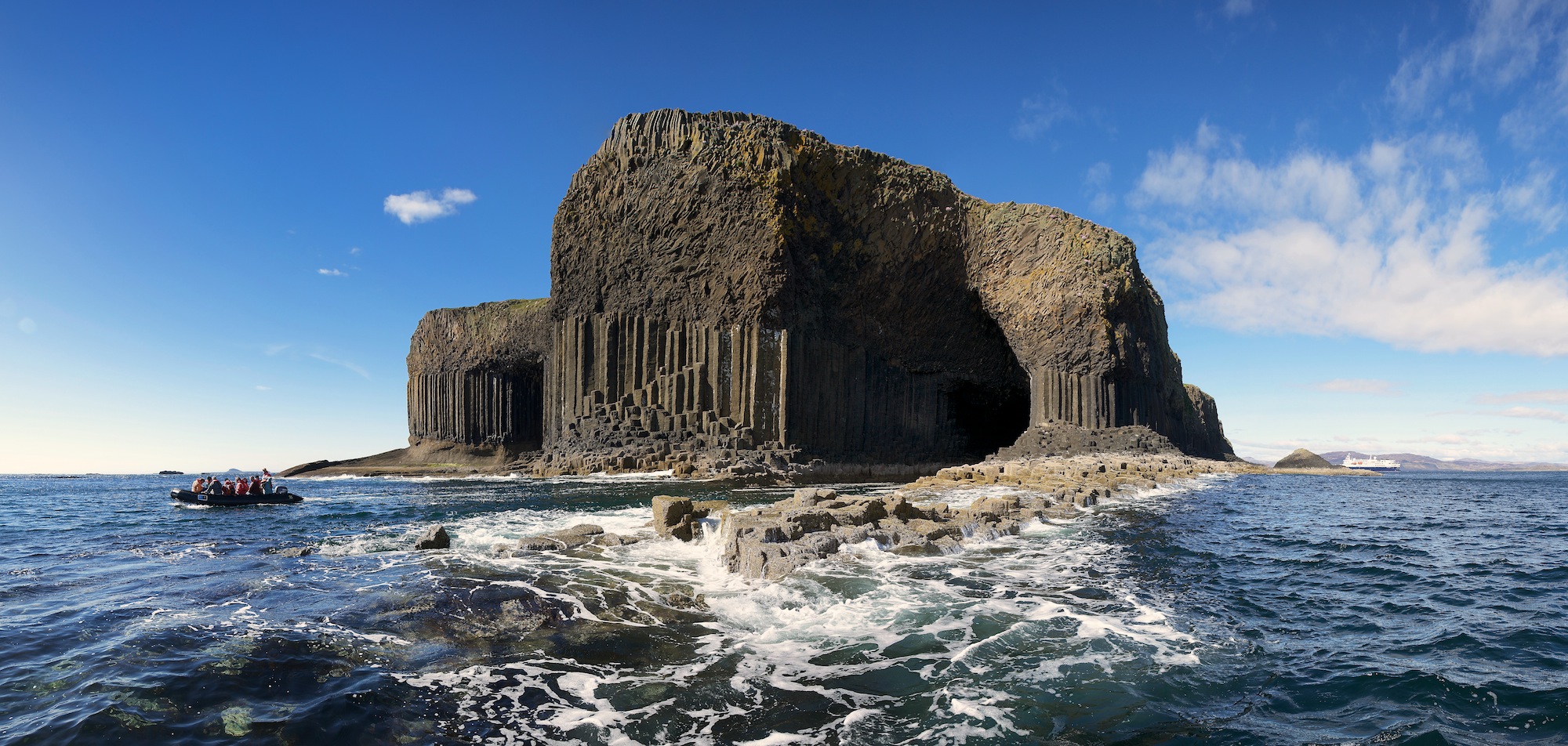
Fingal's Cave, A Unique Caves with Mysterious Voice
The Beauty of Fingal's Cave. Fingal's Cave has a height of about 22 m (72.18 ft.) and a depth of about 82 m (269.03 ft.). It has been speculated that Fingal's Cave is over 50 million years old. As the island of Staffa is situated in an area of volcanic activity, Fingal's Cave was created by lava flow. The cave is made up of three layers.

Fingal's Cave on the island of Staffa in Scotland pics
Staffa and Fingal's Cave (right) seen from the south. Fingal's cave itself has a large arched entrance and is filled by the sea; however, boats cannot normally enter unless the sea is very calm. Several local cruise and charter companies include a pass by the cave in sightseeing tours from April to October. However, it is also possible to.

Fingal's Cave, Staffa Island, Scotland Most Beautiful Picture of the Day September 30, 2017
Fingal's Cave is a sea cave on the island of Staffa in the Inner Hebrides. It is formed from hexagonally-jointed basalt columns similar to the Giant's Causew.

Fingal's Cave, Staffa, Scotland Beautiful Places to Visit
Built Across Continents. Formed over 50 million years ago, Fingal's Cave is located on the uninhabited island of Staffa and contributes to part of a vast network of sea caves. The cave was carved from the same lava flow that shaped the Giants Causeway, an area of about 40,000 interlocking basalt columns in Northern Ireland.

Fingal's Cave on Isle of Staffa
Mesmerizing. Aug 2021. Fingal's Cave is a stunning geological wonder and well worth a visit. The walk to the cave from where the boat drops you off (Staffa Tours) is not very long and there is a rail to hold onto as well as a non slip surface that has been painted onto the path leading to the cave.

Fingal's Cave in Scotland Fingal's cave, Places to travel, Places to visit
History of Fingal's Cave. Fingal's Cave was created around 60 million years ago by the ancient lava flow that also created the Giant's Causeway in Ireland, directly across the sea. Since both are made from the same basalt columns, legend has it that they were the end pieces of an epic road built by the Irish giant Fionn mac Cumhaill so he.

Mysterious Fingal’s Cave in Scotland Earth is Mysterious
Modified date: 22/08/2023. Fingal's Cave is a sea cave located on the uninhabited island of Staffa in Scotland. It is famous for its distinctive hexagonal basalt columns, which were formed by volcanic activity around 60 million years ago. The cave is named after the legendary Irish warrior Fionn MacCumhail (Finn McCool), who was said to have.
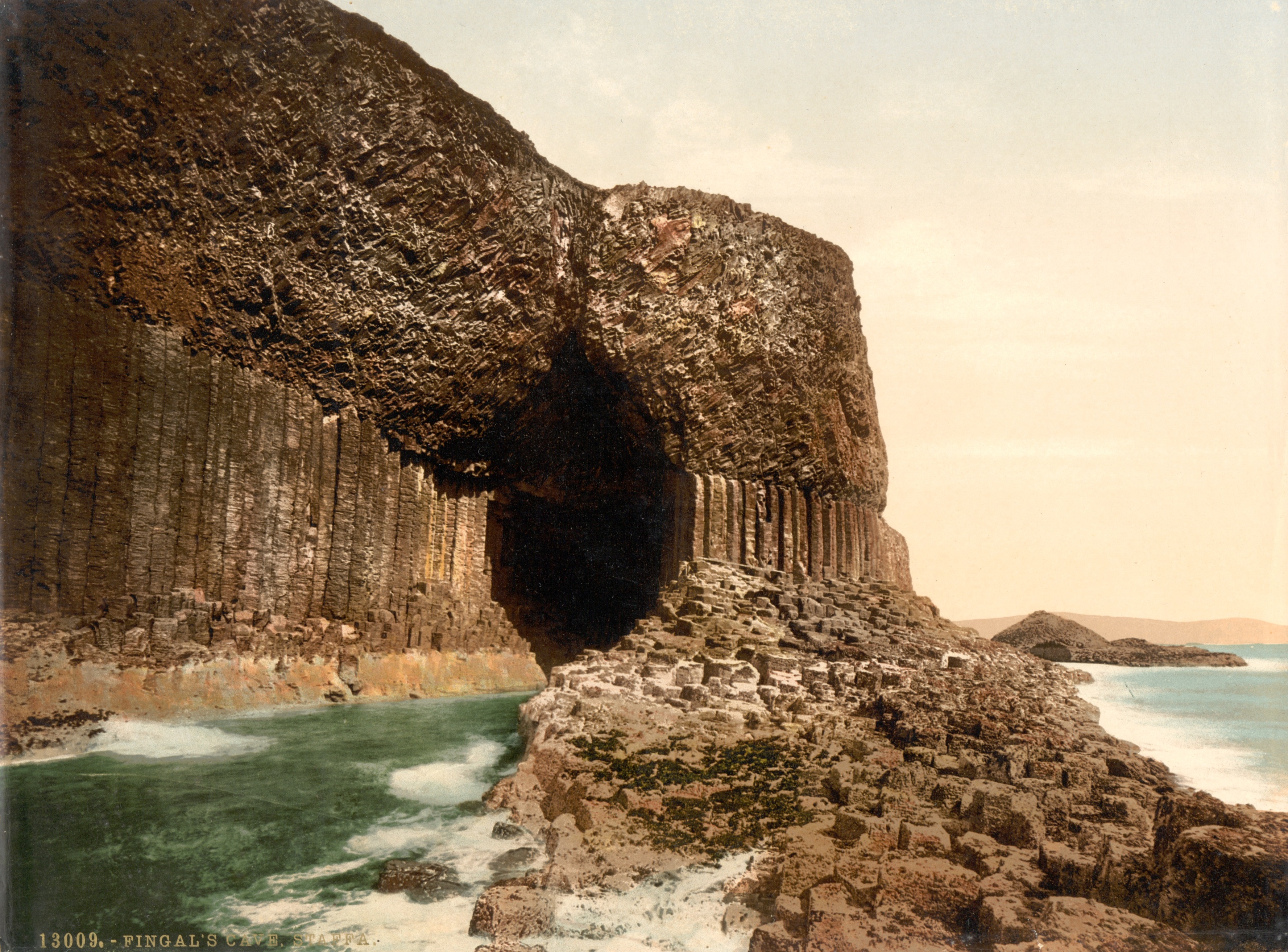
Thomas Moran Fingal’s Cave, Island of Staffa, Scotland c.18841885 [1140x950] ArtPorn
Fingal's Cave will deliver both. Fingal's Cave is the most well-known Cave in Scotland. Its spectacular volcanic basalt columns have drawn tourists for over 250 years. It's estimated that it formed 60 million years ago. Beginning in ancient times and continuing until 1777, the site was a part of the Clan MacQuarrie's Ulva estate.

Fingal’s Cave Scotland, Map, & Location Britannica
Fingal's Cave, most famous of the sea caves in the basalt southwest coast of Staffa, an island of the Inner Hebrides, western Scotland. Estimates of its length vary between 227 feet (69 metres) and 270 feet (82 metres), and its arched roof is said to reach between 66 feet (20 metres) and 72 feet (22 metres) above sea level.

Fingal's Cave Isle of Staffa Visit Mull & Iona
Fingal's Cave is a sea cave on the uninhabited island of Staffa, in the Inner Hebrides of Scotland, known for its natural acoustics.The National Trust for Scotland owns the cave as part of a national nature reserve. It became known as Fingal's Cave after the eponymous hero of an epic poem by 18th-century Scots poet-historian James Macpherson.

Pin by Loren Chambers on Alphabet Soup Fingal's cave, Beautiful places to visit, Fingal
An extremely well-known and popular classical piece of music is Felix Mendelssohn's Hebrides overture, Fingal's Cave. Mendelssohn visited the Island of Staffa and of course the Cave in August 1829. He was allegedly very sea sick at the time. This may help to explain his apparent dissatisfaction with his original version of the overture.

Fingal's Cave, Staffa, Scotland Fingal's cave, Beautiful places to visit, Ireland landscape
The air of brooding and mystery that surrounds Fingal's Cave, located on a remote island off the western coast of Scotland, inspired works by several nineteenth-century artists.This depiction is by Thomas Moran, who was better known for his monumental portrayals of the American west.Moran sketched the legendary cove while on a cruise to the Hebrides Islands and finished it three years later.
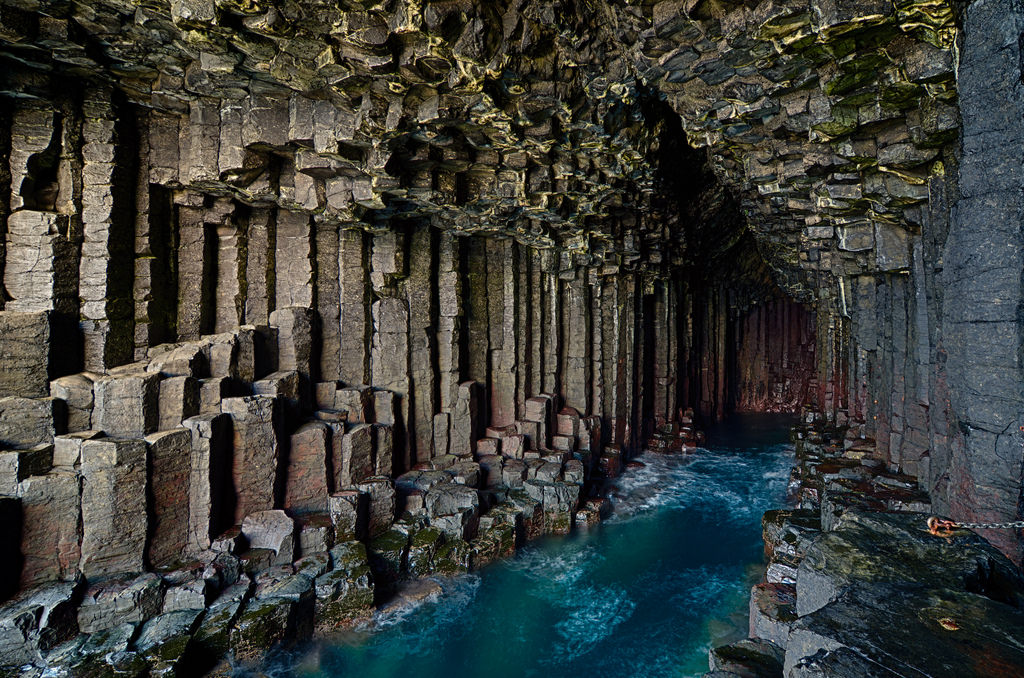
Fingal's Cave, Island of Staffa, Scotland
Known as Fingal's Cave, it bears a history and geology unlike any other cave in the world. At 72 feet tall and 270 feet deep, what makes this sea cave so visually astoundingly is the hexagonal.
My favourite place in bonnie Scotland, Fingal's Cave in Staffa r/Scotland
Amazing sight. May 2022. A must see if you are on the west coast of Scotland. The cave is hauntingly beautiful. There is a fun hike to the cave, which you can enter for a short bit. There are lots of visitors at each moment and there's only one path, so be prepared for that. Truly, a unique volcanic structure.
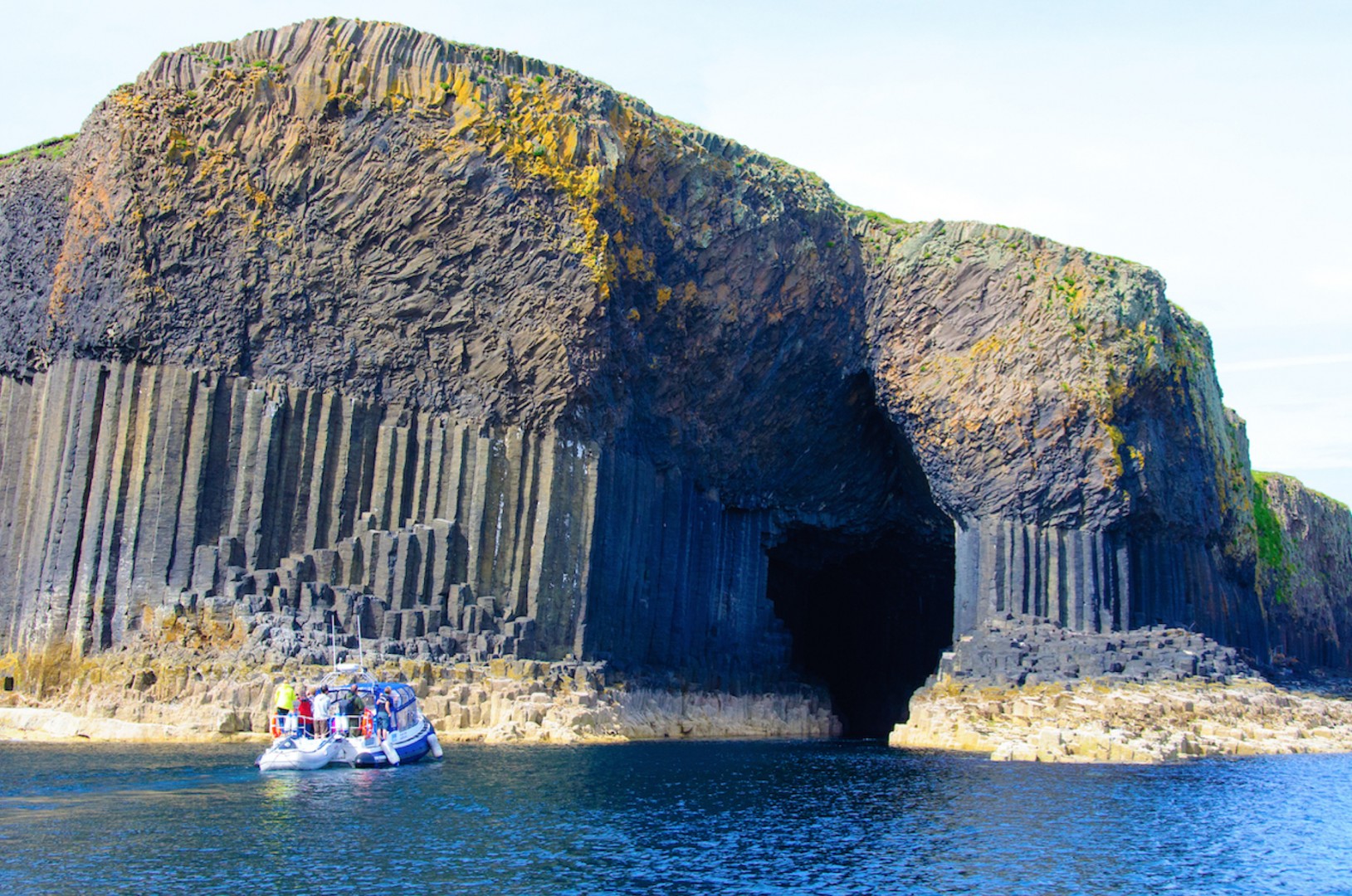
Fingal’s Cave & Wildlife Tour on the Isle of Staffa
Fingal's Cave is a sea cave on the island of Staffa in the Inner Hebrides. It is formed from hexagonally-jointed basalt columns similar to the Giant's Causeway in Ireland. The Giant's Causeway and Fingal's Cave were both formed by the same lava flow 60 million years ago.